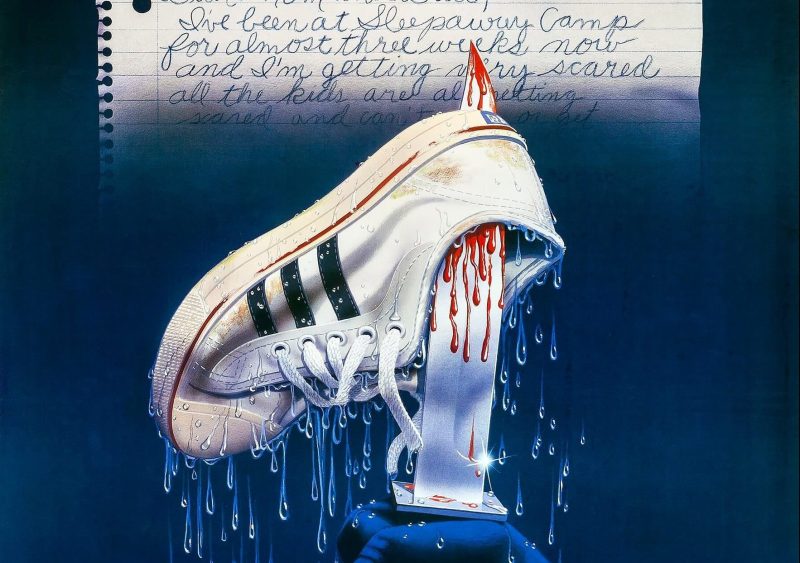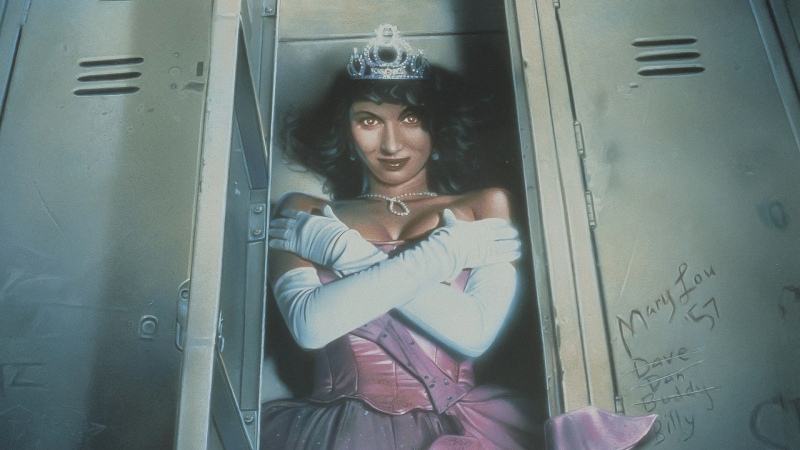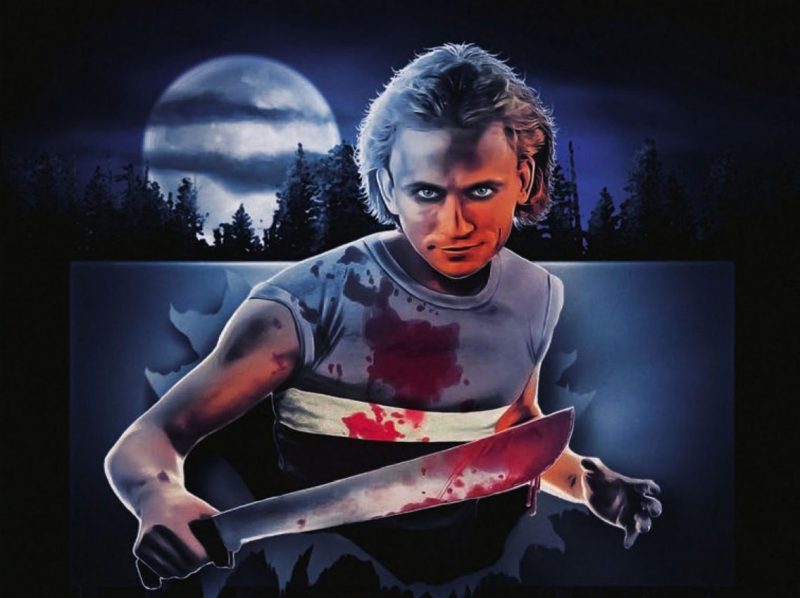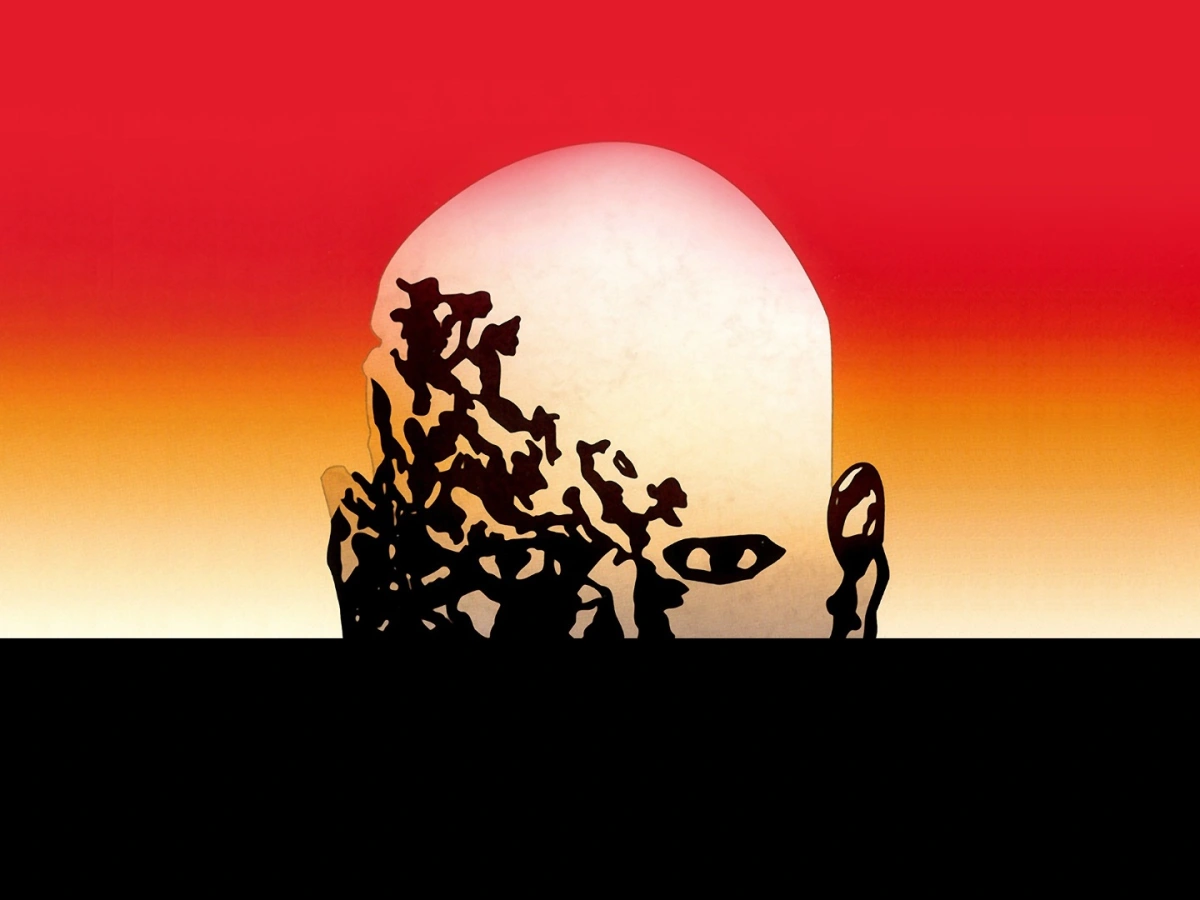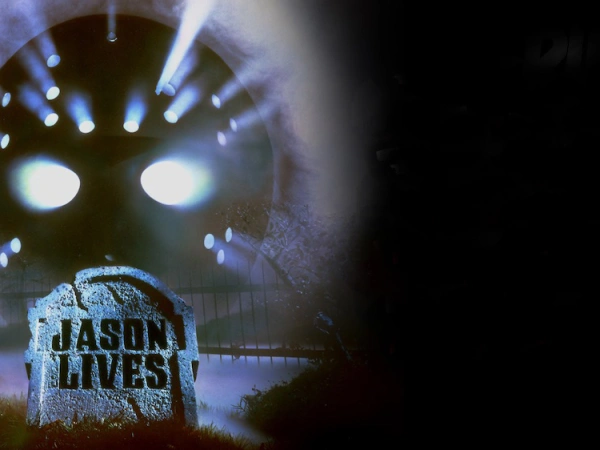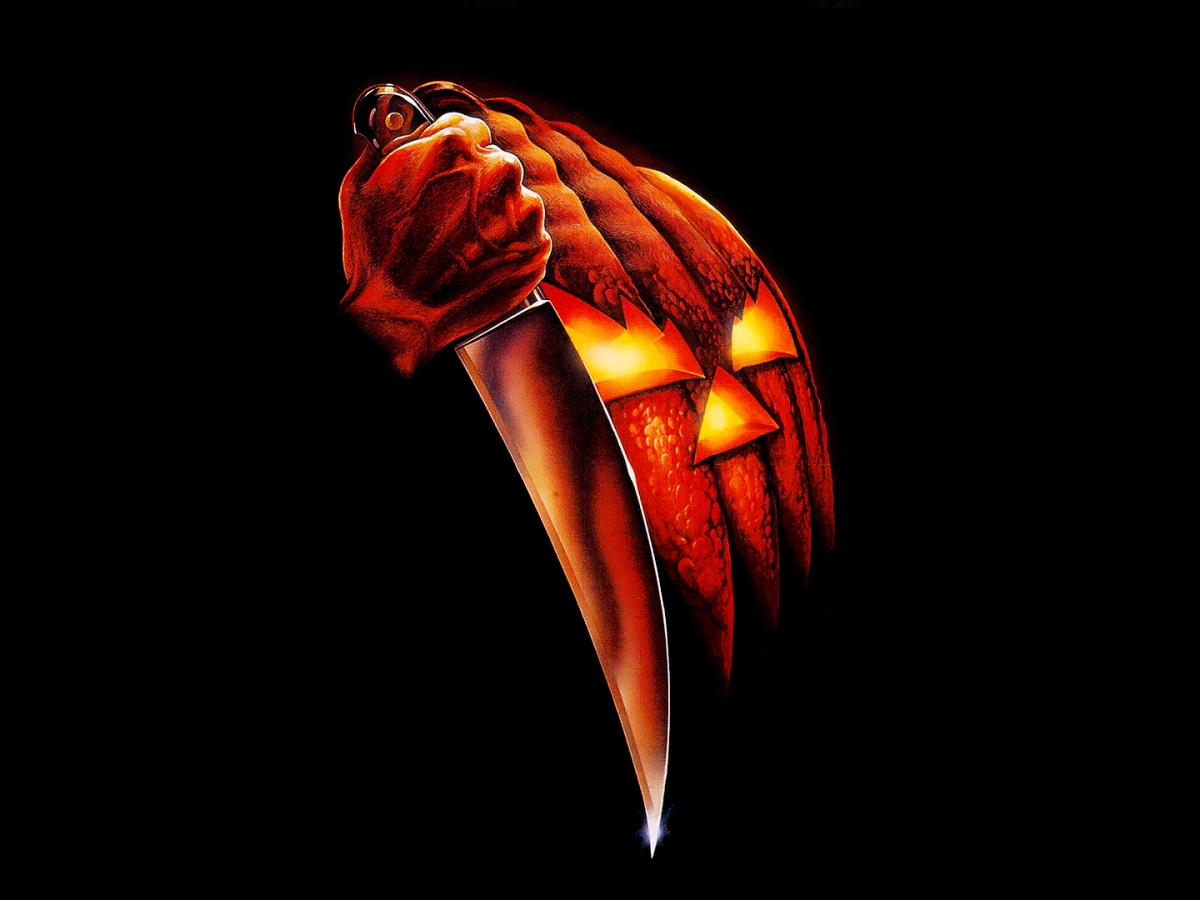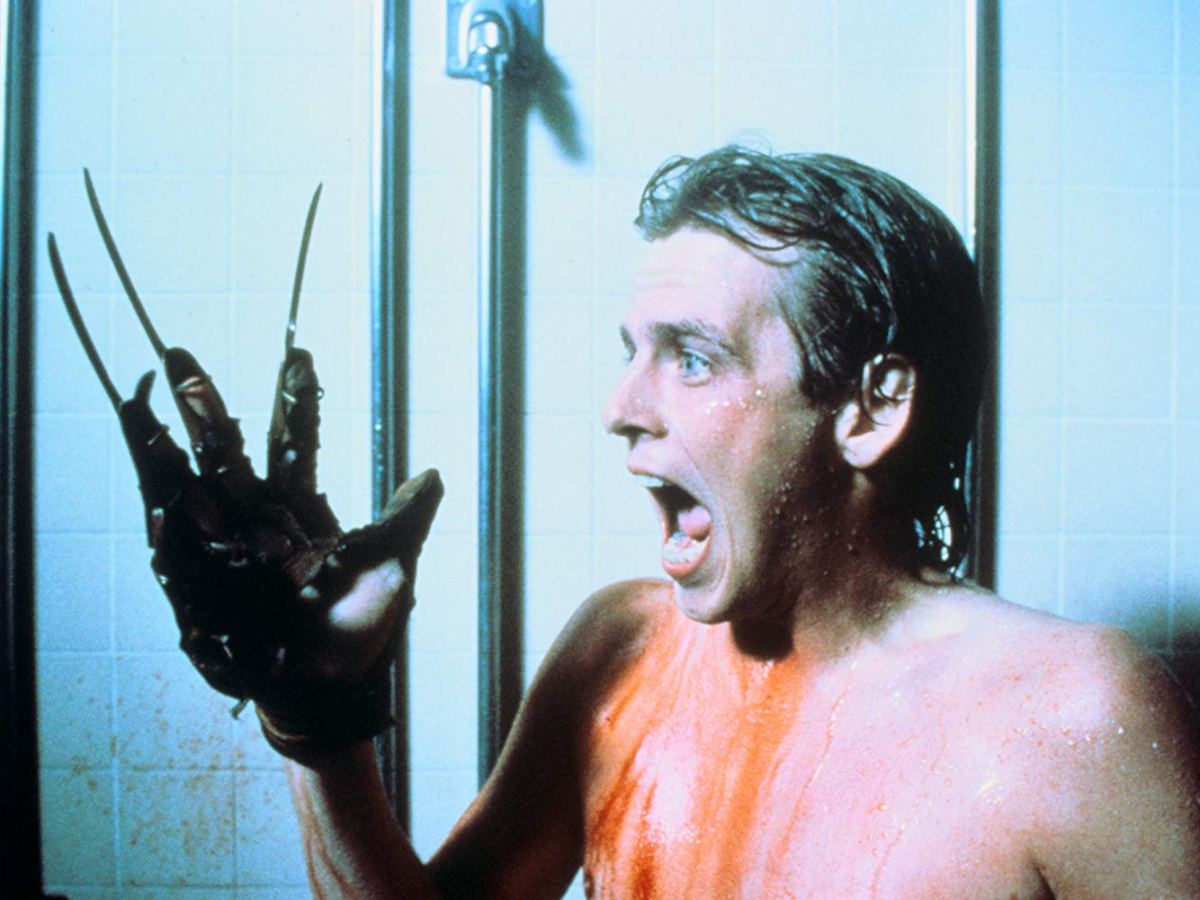
It’s vampires at dawn with Robert Rodriguez’s blistering genre mash
By 1995, writer/director Quentin Tarantino was hot property in Hollywood. His debut movie Reservoir Dogs, a pop culture-infused derivative of Hong Kongnese crime thriller City On Fire, wowed critics at the Sundance Film Festival, co-producer Harvey Keitel just one of an all-star cast eager to work with an unknown entity who had completed the script in just over three weeks. Two years later, Tarantino would release Pulp Fiction, a more accomplished movie that shared many of its predecessor’s characteristics. Graphic violence, nonlinear narratives and extended dialogue that scrapped perfunctory chunks of exposition for everyday interactions were all part of the Tarantino revolution. It added a new dimension to conventional screenwriting, taking the lyrical prose of one of his biggest influences, Elmore Leonard, and tweaking it for 90s sensibilities.
Tarantino’s approach to dialogue sparked a major creative shift, resulting in a slew of movies that attempted to imitate his style and forge their own icons. Movies such as The Usual Suspects, Things to Do In Denver When You’re Dead and Eight Heads in a Duffel Bag would ape Tarantino’s formula to differing degrees of success. Leonard adaptation Get Shorty would even cast comeback king John Travolta as a Miami loan shark with ties to the organised crime world following his against-type triumph as Pulp Fiction‘s Vincent Vega. Tarantino became renown for his use of ensemble casts with at least one former star whose best days seemed behind them, and actors everywhere were queuing up for a renaissance of their own.
It’s difficult to recall a filmmaker who had such an immediate impact on the industry, but Tarantino’s first paid writing gig was for a screenplay that wouldn’t see the light of day for almost half a decade, one long-time friend and collaborator Robert Rodriguez would ultimately direct. Originally touted as a sequel to 1995’s Tales From the Crypt: The Demon Knight, frenetic genre mash From Dusk Till Dawn was one of those movies that immediately set tongues wagging. You were a lucky person if you managed to go into the film blind, something that was essential to its about-turn impact. Fortunately, I was one of those lucky ones, and in turn probably ruined the movie for a whole bunch of friends back in my early teens. The fact that this was the latest movie attached to the hip Tarantino name no doubt played a part in my spoilery, but it was the film itself, one of the first to truly shock me with its startling matrimony of genres, that forced me to spill the beans. Come hell or high water, I just had to tell someone.

In terms of dialogue, From Dusk Till Dawn is another smart, fast-paced and infinitely quotable movie. An opening scene featuring a breathless shootout at an isolated convenience store is pure Tarantino — a fast-lipped, ultra-violent showdown featuring pulp characters who are immediately relatable. His amplified approach, juxtaposed with everyday talk between larger than life characters who somehow possess the mark of everyday people, was fresh, unique and utterly compelling. These were simpler times for Quentin, long before his auterism led to somewhat bloated, occasionally self-indulgent (in a good way) works. With Rodriguez manning the lens, From Dusk Til Dawn is stripped back, ferocious and unapologetic. By the time the movie’s lead thugs exit the flaming scene, we know we’re in for the kind of water-tight thrill ride you simply can’t swim free of.
Has anybody here read a real book about vampires, or are we just remembering what a movie said? I mean a real book.
Jacob
The story of two bandit brothers looking to make it across the Mexican border after a messy bank robbery, From Dusk Till Dawn features a typical ensemble cast of familiar faces and relative unknowns. Early Tarantino mainstay Harvey Keitel is back on board, going against type as a faithless preacher mourning the death of his wife. Keitel’s Jacob Fuller brings a wizened sense of discipline to a movie brimming with explosive flamboyance, forging an engaging relationship with the movie’s conflicted antihero that almost belies its frenetic, splash panel style. Like Pulp Fiction, the dialogue is unnatural in the sense that every single line is designed to bleed Tarantino cool, but there’s a relatability to the delivery, a human quality to the character interactions that defies expository convention. From start to finish, you live in the moment.
Jacob’s daughter and stepson, played by the red hot Juliette Lewis (a friend of Tarantino’s) and complete unknown Ernest Liu, make the perfect hostages for our desperate criminals as they hijack the family RV and attempt to smuggle themselves away from American jurisdiction. Lewis is particularly magnetic. The future Natural Born Killers actress had that naïve temptress quality down to a tee, and in sexual deviant, Richie, she has the ultimate foil. Three years earlier, Robert De Niro’s Max Cady would stoke the fires of Lewis’ taboo sexuality in Martin Scorsese’s ferocious remake Cape Fear. Here, Tarantino and Rodriguez, the former through suggestive dialogue, the latter through long, leering shots, brand it with a red hot poker. Lui, whose character is best remembered for his iconic ‘Precinct 13’ T-shirt, a nod to Rodriguez inspiration John Carpenter’s Assault on Precinct 13, and an excruciating onscreen death that still makes you grit your teeth with repulsion, would star in only a handful of productions throughout the years, mainly as an extra, but his anomalous turn as the ill-fated Scott Fuller lives long in the memory. It’s such bizarre casting.

After small parts in his two first movies, Tarantino also tackles his first major acting gig as the youngest Gecko sibling. He puts in one hell of a shift too, slithering into the role of a psychopath plagued by paranoid delusions, a miscreant motivated by sex and murder who seems rather fond of mixing the two. It’s a testament to both his screenplay and performance that a violent molester possessed by mankind’s darkest urges becomes an almost likeable character by the time our unlikely rabble pull up to the aptly named Titty Twister, a remote haunt for truckers that lives up to the movie’s titular promise. But more on that later.
Our ability to empathise with Richie (at least to some degree) is tied to his relationship with brother, Seth, and his ironic role as the infant in the equation. After a series of brutal and unnecessary murders set Richie up as the devil incarnate, we see a more helpless side to him, the kid who’s forced to wear a bit to curb his habit as a teeth grinder. Like a kid, he’s also something of a petulant agitator, the kind who’d rather alert the border cops for a life in jail than lose face in a petty quarrel. Richie may be a monster in the eyes of the world, but without Seth he’s almost completely helpless. His place in humanity is valid only through bloodline.
Asides from his life as a fellow criminal, Seth is the complete opposite of his deranged sibling. Suave, calculated and incandescent with Tarantino cool, he’s a no-nonsense criminal who’s only dangerous when it’s absolutely necessary. Given the gravity of their situation, he’s curt and aggressive, but fair, and as long as you play by his rules, almost completely harmless. Seth is played by George Clooney, a big screen newcomer most famous for his role as Dr. Douglas Ross in Michael Crichton’s revolutionary hospital drama ER. Well into the 21st century, Clooney is one of the most respected actor/directors in Hollywood, becoming a go-to personality for the inimitable Coen Brothers and bagging two Academy Awards and an incredible eight nominations along the way.

Prior to Rodriguez and Tarantino’s hyper-stylised genre mash, Clooney had failed to land a silver screen gig for three years, but his lead turn in From Dusk Till Dawn changed all that, the actor bagging two-to-three major roles per year thereafter, including the lucrative lead in Joel Schumacher’s much maligned but hugely successful Batman and Robin. From Dusk Till Dawn provided Clooney with the perfect launching pad, one that enabled him to transcend the pretty boy image he’d become so hopelessly synonymous with, and he’s absolutely convincing as hard-man-with-a-heart, Seth, winning over the male demographic with a tough-guy performance that oozes cult appeal. Clooney steals the show as the hot-headed, yet dependable Seth, his love-hate relationship with Keitel’s unyielding man of the cloth a joy to behold as the plot thickens to a blood-curdling stew.
I know what’s going on. We got a bunch of fucking vampires out there, trying to get in here and suck our fucking blood. And that’s it. Plain and simple. I don’t want to hear anything about “I don’t believe in vampires,” because I don’t fucking believe in vampires, but I believe in my own two eyes, and what I saw, is fucking vampires. Now, do we all agree that what we are dealing with is vampires?
Seth
You may be wondering why I’ve made little mention of Robert Rodriguez up until this point. After all, he did direct the movie. First of all, for those who are yet to see it (and to you I suggest that you stop reading now), From Dusk Till Dawn is a movie of two halves, the kind with a wholly unexpected twist that it lives and dies by. Years later, Rodriguez and Tarantino would collaborate on quasi-double feature Grindhouse, a project consisting of the former’s post-apocalyptic zombie flick Planet Terror and the latter’s Kurt Russel headed exploitation homage Death Proof. Those features were distinct to their creators, but the whole thing worked as a double feature, and From Dusk Till Dawn, a far superior joint project, is like a scaled-down version, the perfect recipe to the latter’s overindulgent banquet.
That’s not to say the influence of Rodriguez is absent during the first half of the movie, which plays out like your typical post-Tarantino crime thriller, but the former’s comic book style and over-the-top action sequences are mostly reserved for the film’s famous switcheroo, and when it finally comes it hits you like a blast of flesh-melting sunlight. Prior to this we traverse a typically barren Rodriguez landscape, the movie dust-covered with a desolate, unforgiving terrain reminiscent of the director’s ‘Mexico Trilogy’. The soundtrack also has something of a Latino flavour, tracks such as Dark Night dripping with cartoon irony and delirious badlands charm. The movie is slick and violent and ludicrously OTT — everything you would expect from the director’s colourful approach to filmmaking, and it’s exactly this style that makes the movie’s twist so seamlessly palatable. In more serious hands, it may well have been rejected outright, but in this instance we embrace it without resistance. We succumb to its vampire spell.

When it comes to shifts in genre, there are few as audacious as that found in From Dusk Till Dawn. Other movies may execute theirs with a subtlety that catches you off-guard, and on the surface you should not be surprised by anything ‘Dusk”s excessive style throws at you, but when we finally arrive it is just as startling. Our biggest distraction comes in the form of the sizzling Salma Hayek, whose public display of breathtaking sensuality eases the raucous like a touch of heaven-spun divinity. This is the calm before the storm. In fact, it may provide the only moment of relief in the entire movie, seducing you just long enough for you to take your eyes of the road, and then BAM! The actress’s table dance inside the Titty Twister fulfils Tarantino’s self-confessed foot fetish and then some, but it’s Richie’s hand, haphazardly taped-up after previously having a hole blown through it, that becomes Hayek’s carnal desire, an exacerbation in the wound triggering the repressed lusts of those parasitic creatures masquerading as everyday barflies.
It’s then that all hell breaks loose, Rodriguez letting rip with a splash panel of comic book grotesquery. The movie’s grand guignol final act is so relentless and crammed full of visual quirks you barely have time to register. When the dust temporarily settles following the film’s first vampire siege, our dysfunctional family of Seth, Jacob, Kate and Scott are joined by a cigar-smoking tough guy and a bandito with a gun for a dick, resulting in the most dysfunctional gang of vampire killers ever committed to celluloid. It’s an absolute riot.
In pure Tarantino fashion, our latest additions are played by cult movie royalty, the former by blaxploitaion icon Fred Williamson, the latter by practical effects maestro Tom Savini — here taking a SFX backseat to legendary peers KNB EFX, who Tarantino initially wrote the screenplay for as a way to showcase their inimitable talents. We also get Rodriguez go-to-guy Danny Trejo, cult comedian Cheech Marin in a triple role as a perverted border cop, a vampiric doorman with a very distinct taste for the ladies, and Seth’s severely misguided Mexican partner. There’s also a fleeting cameo from John Saxon as a pursuing FBI sheriff. By this point QT, Rodriguez and their gang of familiar faces are having an absolute blast, the unabashed fun and frolics translating to the audience with breakneck aplomb.
Attention pussy shoppers! Take advantage of our penny pussy sale! If you buy one piece of pussy at the regular price, you get another piece of pussy of equal or lesser value for only a penny! Try and beat pussy for a penny! If you can find cheaper pussy anywhere else, fuck it!
Chet Pussy
The special effects on display are simply hilarious. The transformations themselves can be terrifying, but the manner of deaths are so gloriously absurd it’s hard to get grossed out on any serious level, a conscious thing on the director’s part, who swapped red blood for green ooze in an attempt to dodge the dreaded NC-17 rating. In one of the last great practical effects splurges, limbs are pulled off at will, tables are turned into quadruple steaks, pencils are used to bring an end to still-beating hearts, and when the bar’s resident vampire band turn a ravaged torso into a makeshift guitar, you know the possibilities are limitless. Far from reaching for the pillow, by this point you daren’t look away for fear of missing something.

From Dusk Til Dawn would feature minor instances of burgeoning CG technology, but due to his frenetic editing style, Rodriguez wanted to keep them to a minimum. As KNB co-founder Greg Nicotero would explain, “It has been interesting since [From Dusk Til Dawn] to watch Robert grow as a filmmaker, particularly in regard to effects. He’s a big fan of John Carpenter and George Romero and those guys; so he was much more interested in physical props and puppets and makeup stuff on From Dusk Till Dawn, and most of the gags on the movie were those types of effects. The few minor visual effects shots we did have, he didn’t seem to like dealing with. He was so accustomed to shooting fast — and everyone knows that when you shoot visual effects, everything screeches to a halt. So even as far back as From Dusk Till Dawn, he was beginning to think, ‘If I’m going to have visual effects in my movies, I need to learn how to incorporate them into my gorilla style of filmmaking.”
It’s after the film’s initial practical effects onslaught that our remaining survivors find the Titty Twister’s secret stash of trucker merchandise buried in the catacombs of pulp cinema’s most costly drinking establishment. Rodriguez manages to smash vampire convention by staying oddly loyal to it. In the newly devout Jacob we have a truly divine weapon, a man who can turn ordinary tap water into God’s ammunition, but the manner in which that water is dispensed displays the movie’s true charms. After a heartfelt, suitably no-nonsense speech from Seth, ordinary condoms are turned into makeshift water bombs, the use of a Super Soaker as a devil-killing dispenser a delightful touch for any watching kid, particularly as it becomes the teenage Scott’s weapon of choice. The sight of a gang of thirsting vampires bursting into flames thanks to a squirt gun is pure child’s play, but it’s so rewarding. You’ll be hard-pressed to find a horror movie as gloriously jovial as From Dusk Till Dawn. This is shameless entertainment that reminds you just how much fun movies can be.
In the annals of cult cinema, From Dusk Till Dawn seems to have faded from the public consciousness somewhat. Sure, it inspired a series of inferior sequels and even a TV series, but there are so many movie-inspired shows these days that it’s hardly indicative of the movie’s enduring popularity. Rodriguez and Tarantino have gone onto bigger things since From Dusk Till Dawn, one of the last examples of pure practical effects indulgence before the widespread use of CGI as the industry’s dominant visual technology. The movie may lack the credibility of some of Tarantino’s more recognised productions, Rodriguez later turning graphic novel chic with silver screen adaptations of Frank Miller’s neo-noir comics Sin City, but for pure, unabashed entertainment in the Carpenter and Romero tradition, this is a hard one to emulate. I just wish there were more movies that are this much fun.
Director: Robert Rodriguez
Screenplay: Quentin Tarantino
Music: Graeme Revell
Cinematography: Guillermo Navarro
Editing: Robert Rodriguez











